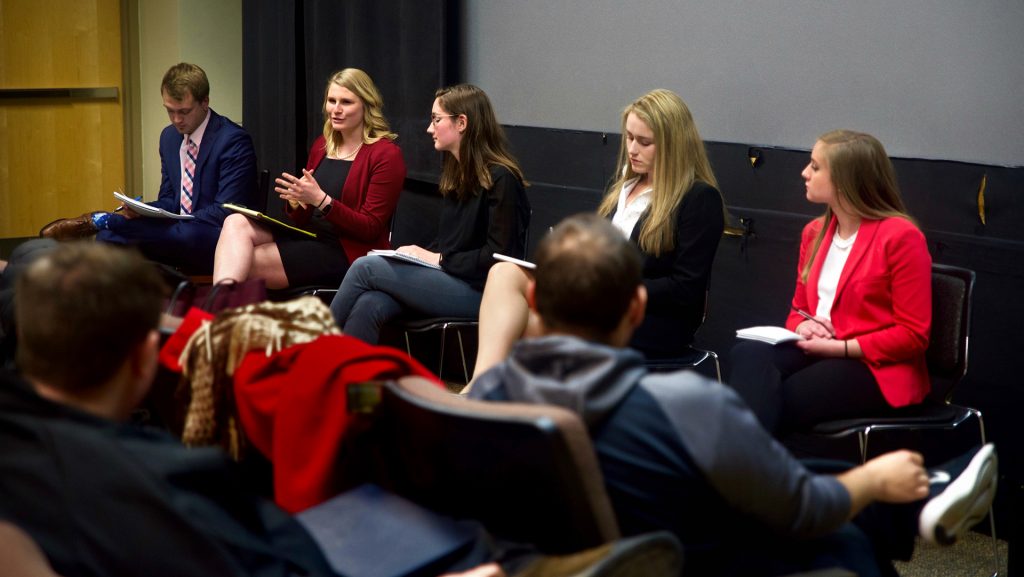While the student government has worked to create more independent Senate seats in recent years to keep the organization accessible, in the most recent election cycle, only two of those seats were filled.
Thirty-seven senatorial seats were up for grabs this election, seven of which were reserved for independent senators. Six candidates ran as independents, but only two met the 10 percent threshold of votes required to get a seat in University of Iowa Student Government. Five reserved seats now remain unfilled until the fall.
“I think there are a number of different things that Senate should consider next year to change the system of how independent senators are elected,” UISG President Jacob Simpson said. “One thing we saw this year different from other years is that when we have so many ticketed senators running, our system wasn’t set up in a way that ensured independent senators were elected for the seats that we had reserved.”
In order to be elected, senatorial candidates have to receive 10 percent of the votes. Simpson said the goal of setting the threshold was to ensure the people being elected to the reserved seats had a legitimate numbers of support from students.
Simpson said the remaining seats will be treated as at-large seats. Interested individuals will fill out an application and apply, and then the Internal Affairs Committee, made up of elected UISG senators, will interview and select people to fill the seats.
“It’s really important that those seats stay seats that we’re able to fill through at-large positions and applications in the fall rather than letting in five more people that were running as ticketed senators … to keep the accessibility of the organization,” Student Elections Commissioner Johanna Hetherington said.
RELATED: In light of upcoming elections, UISG holds independent senator forum
Individuals interested should consider applying, she said, especially those who ran as independents this election.
“It was really great to see a lot of interest, and I hope that people apply for those positions and even the people who ran and maybe didn’t reach that threshold apply for those positions, because they had a lot of really great ideas,” Hetherington said.
Under the Simpson-Sánchez administration, three independent seats were added.
“I think it’s important for UISG to have independent senator seats in order to create access to the organization and really to get diverse viewpoints,” Simpson said.
The two candidates elected as independent senators were Lindsey Meyer and Noah Wick. Meyer received 12.2 percent of the total votes, and Wick received 10.2 percent. Both said they were honored to have been elected.
“Running as an independent is an incredible experience during the election season, but an even more powerful position to be in in Senate, because I can think independently and truly think about what’s right for the people I’m representing and not being tied to any specific views of anyone that I might have run with,” Meyer said.
Wick said he didn’t know he needed 10 percent of the vote to get a seat until about halfway through the election and said UISG could communicate that more to candidates running in the future.
“There could be more work done to promote the independent senators or more work done to put information out on their platforms, because students do get 37 votes when they cast a ballot,” Wick said.
UISG will continue to work to make the election process more accessible and fair, Simpson said.
“We were really happy to see all the interest we had this year in UISG elections, and it was a priority of ours to make sure that more people could get involved and have the opportunity to run, and I hope that we can just continue that trend in future years,” Simpson said. “We are continually looking at how the elections code can be changed to offer a fair and engaging election.”



